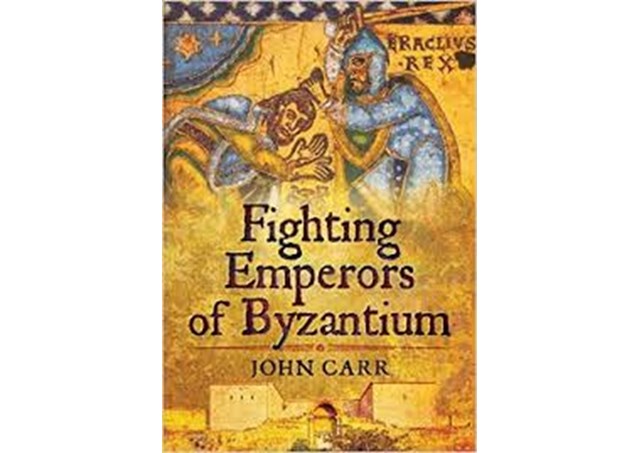
Fighting Emperors of Byzantium and the human side of history

(Vatican Radio) When the Roman Empire in the West ceased to be the primary ordering force in the political and social landscape of what would become Europe, the torch of Roman civilization was carried for a thousand years in the East. Known to history as the Byzantine Empire – an appellation derived from the original name of the modest trading center on (or better, out of) which the Roman Emperor Constantine the Great built his eastern capital – the New Rome (as the secular rulers of the "new" political and social institution often styled their city – and themselves, Rhomaioi, “Romans”) struggled constantly and with varying degrees of success to maintain and even make thrive the civilizational project born of the lived synthesis of a peculiar Jewish theology of history, with the Roman system of governance and the Greek spirit of inquiry into the ultimate reason of things – a synthesis known more simply in its spiritual acception as “Christianity”.
Some of those secular rulers – Emperors – not only struggled but quite literally fought for their cause against diverse and, as the years and centuries went on, increasingly numerous and powerful adversaries. In Fighting Emperors of Byzantium (288pp., Pen and Sword, 2015), Athens-based author and journalist (not to mention Greek affairs correspondent for Vatican Radio) John Carr has told their story. He has done so in vivid prose that immediately engages the reader and renders his presentation of the vast material accessible to the general reader, even as it makes well-travelled ground fresh to the initiate.
Click below to hear our conversation with John Carr, author of Fighting Emperors of Byzantium
Accessible and fresh as his prose is, the rigors of adapting the material to fit the scheme of a single, not too lengthy volume, made drastic economies in selection of subjects and expanse of narrative inevitable. Carr, however, is frank and unapologetic about his choices. “I realized early in my own project that to compress eleven tumultuous centuries of Byzantine history into a single moderate-sized volume, even limited to the military aspects, would be a considerable task,” writes Carr in the prologue. His willingness to make difficult decisions results in strategic success, however much history lovers might quibble over this or that tactical decision.
Carr is equally frank when it comes to his decision to concentrate and focus on the humanity of his subject(s) – a frankness that could be water in the desert to anyone dismayed at the prevalence of technocratic currents in historiography generally. “I describe every Byzantine emperor who ever went into combat in primarily human terms,” explains Carr, “and only secondarily as part of a ‘process’ or supposed wider political phenomenon.” Many of the character sketches Carr offers depict historical actors who were very human, indeed. In sum, while Carr is perhaps too modest when he disavows any pretense of academic rigor or precision, he has succeeded in presenting us with, “stories of flesh-and-blood people and the military and political challenges they were called upon to meet.”
This is not to say there is no fil rouge running through the pages of the book. “If there is a broader narrative to note,” writes Carr again in the prologue, “it is the very dramatic one of a Christian empire which spent a thousand years preserving civilization in an eternally troublesome corner of the world, and which ultimately went down fighting with supreme heroism in defence of Christendom and the preserved treasures of Greek and Roman culture on which the structure of the West has been built.”
Clearly written for the general reader, The Fighting Emperors of Byzantium is nevertheless the kind of book with the power to remind professional historians why they fell in love with their discipline, in the first place. It will edify and delight almost any reader.
| All the contents on this site are copyrighted ©. |


